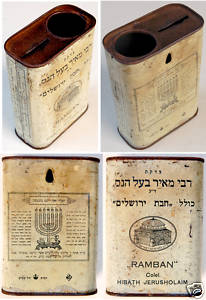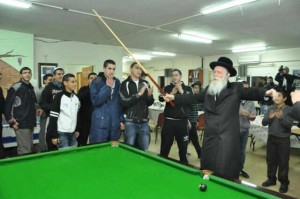Dvar Torah for Parshat Behar-Bechukotai 5773
All Beginnings Are Difficult
Well now. 148West’s maiden dvar Torah. Very exciting, for me at least. After writing “a weekly column” for someone else, I’m doing it for someone else—me. The exciting part is, that no longer working as “an official spokesman” for Breslov Research Institute (blessed be its name) and, by extension, Breslov, I can write about topics that an organization wouldn’t. To have that freedom is exciting.
It’s also a big responsibility. Those who know me, or of me, expect that what I say is Breslov, or defines Breslov, or is the consensus of Breslover chassidim. That’s a definite maybe. I try, in my personal life, to behave (and speak, and think) in accord with what I learn in Rebbe Nachman’s works. (When I say “Rebbe Nachman’s works” I mean also those of Reb Noson, in particular Likutey Halakhot.) Of course, no two Breslovers understand the Rebbe’s teachings in the same way—which is exactly how he intended it, and exactly the way it oughta be.
As I wrote there, on 148West’s home page, I’m not here to preach. I’m here to teach, to share, to probe, maybe even to provide answers. The point is—and I firmly believe it’s the baseline of Rebbe Nachman’s mission—to help anyone and everyone Be. More. Jewish.
Which leads us in to our dvar Torah. Actualizing potential is the major theme of Likutey Moharan Lesson #66. Let’s take a look at a small section of the lesson (the start of §2):
The final outcome starts in thought. For example, when a person wants to do something, to build a bayit (house, home), let’s say, he must first think and consider what his bayit will look like. When he has a clear picture of what his bayit will look like, he can begin to build it. In this way, the ultimate product starts in the mind. And until the potential is actualized, the potential [bayit] is bound to the germ of the idea.
Part of what makes Likutey Moharan so powerful is the perspective it gives us for viewing life, on a grand, sweeping historical scale, on a personal, microscopic scale, and everything in between. For example, the bayit the Rebbe refers to is not just a physical structure, a yurt or an igloo. He means your ultimate bayit, the place you will reside for eternity.
Before we go on, let’s think about this vague word, “eternity.” The Steipler Rov, Reb Yaakov Yisrael Kanievesky obm (1899–1985), gave the following analogy to give us an idea of “how long is eternity.” Imagine, Planet Earth covered around and around by a pile of sand 10 miles high. Now, once every 10,000 years a bird flies in and takes away a grain of sand. How long will it take for the bird to remove all the sand? Eternity is longer than that. Back to our topic.
Did you ever think what your bayit will look like? One room for emunah (faith), one for tefilah (prayer), another for your kindness to orphans and one for your kindness to widows, to the poor. Rooms for the various areas of Torah you studied and others for Torah that you taught. And how well-lit will your bayit be? There’s an old Yiddish expression applied to a person who has passed on: May he have a lichtege Gan Eden, a bright Garden of Eden. You don’t want a small light bulb, do you?
So we need to spend time thinking about our future bayit. We’ve got to think about how we’re going to build it, and get started.
There’s another bayit that needs to be built. Although it doesn’t make sense to talk of God “actualizing His potential,” the world He created needs to actualize its potential. God created the world in order to “dwell” in it, which is one of the reasons we were commanded to make a Mishkan (Tabernacle) in the desert and build the Beit HaMikdash (Holy Temple) in Jerusalem. As we consider building our individual bayit, actualizing our personal potential, we should try our best to see how that fits with building God’s bayit, actualizing the potential of other people as well.
Because sometimes, I can develop and grow a good deal if I focus on myself. On the other hand, if I open myself to giving my time to others, I won’t get as far. but others will make progress that they couldn’t have without me. Some might make more progress than I ever could have made. And some may end up helping so many, many more people than I could ever have dreamed possible.
Thinking I’m making this up? Adam, the first human being, was to have lived for a thousand years. He didn’t keep them all for himself. He gave away 70 years of his life to King David, who was to have been stillborn. But by giving away his time—years, decades of his life!—Adam triggered a events that led to one person’s living a life in which he built the Kingdom of Israel, laid the foundation for the first Beit HaMikdash, wrote Tehillim (Psalms) and began the royal line that will lead to the Mashiach, may he come swiftly and soon, in our lifetime. Amen.
Based on Likutey Moharan I, Lesson #66
agutn Shabbos! Shabbat Shalom!
© Copyright 2013 O. Bergman/148West



